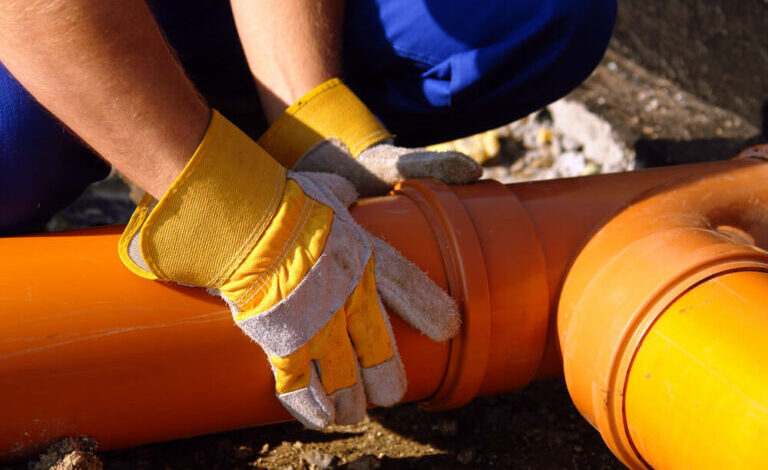The Complete Guide to Sewer Line Repair: What Homeowners Should Know

A properly functioning sewer line is one of the most critical components of any residential or commercial plumbing system. It’s responsible for carrying wastewater away from your property and ensuring a hygienic, healthy environment. However, when sewer lines fail, the consequences can be both unpleasant and costly.
Whether you’re experiencing slow drains, foul odors, or soggy patches in your yard, sewer line issues should never be ignored. This comprehensive guide breaks down everything you need to know about sewer line repair—from identifying warning signs to understanding the different repair methods and choosing the right professionals for the job.
Understanding the Role of Sewer Lines
Sewer lines are underground pipes that transport wastewater from your sinks, toilets, showers, and laundry appliances to the municipal sewer system or a septic tank. They are typically made of materials such as clay, cast iron, PVC, or ABS. Over time, these lines can deteriorate, become clogged, or sustain damage from environmental factors.
Failure in your sewer line can lead to significant problems like sewage backups, property damage, and health hazards. Understanding how your sewer system works and the symptoms of failure can help you take timely action.
Common Causes of Sewer Line Damage
Sewer line problems don’t happen overnight. They typically result from gradual wear and tear, environmental conditions, or structural failures. Some of the most common causes include:
1. Tree Root Intrusion
Tree roots are naturally attracted to moisture. If there’s even a small crack in a sewer pipe, roots can penetrate it and grow, eventually blocking or breaking the pipe entirely.
2. Corrosion and Aging
Older pipes, especially those made of cast iron or clay, are more prone to corrosion and degradation. Over decades, these pipes can collapse, crack, or corrode.
3. Ground Movement
Soil shifting due to heavy rainfall, nearby construction, or natural settling can cause sewer lines to shift or break.
4. Blockages
Grease, foreign objects, non-flushable wipes, and other debris can accumulate over time and create significant blockages in the system.
5. Poor Installation
Improper slope or poor-quality materials used during installation can lead to long-term problems and frequent backups.
Warning Signs You Need Sewer Line Repair
It’s important to catch sewer line problems early before they escalate into emergencies. Here are key indicators that your sewer line may need repair:
- Slow Drains Throughout the House: If multiple drains are slow at once, the issue likely stems from the main sewer line rather than individual fixtures.
- Frequent Backups: Consistent toilet or drain backups point to a deeper issue than a simple clog.
- Unpleasant Odors: A strong sewage smell inside or outside your home is a red flag.
- Lush, Soggy Patches of Lawn: A leaking sewer line can fertilize certain areas of your yard, creating extra-green spots or soggy ground.
- Gurgling Sounds: Bubbling or gurgling noises from your drains or toilet could mean trapped air due to a blockage.
- Foundation Cracks or Sinkholes: In extreme cases, a damaged sewer line can lead to soil erosion beneath your home’s foundation.
If you’re experiencing any of these issues, it’s time to call in professionals who specialize in Sewer line repair in Mobile, AL or your local area.
Diagnostic Methods for Sewer Line Issues
Modern technology allows plumbing professionals to diagnose sewer problems quickly and accurately. Here are some of the most common diagnostic tools used today:
1. Video Camera Inspections
A small waterproof camera is fed through your pipes to visually inspect the interior. This allows the plumber to identify blockages, cracks, root intrusions, and other issues in real-time.
2. Smoke Testing
Non-toxic smoke is pumped through your plumbing to detect leaks or unauthorized connections. If smoke escapes from areas where it shouldn’t, a leak is likely present.
3. Hydrostatic Testing
This method tests the pressure inside the sewer lines to detect hidden leaks or breaks.
Accurate diagnostics not only help identify the problem but also determine the most cost-effective repair method.
Sewer Line Repair vs. Replacement
Depending on the severity of the damage, your plumber may recommend repair or full replacement. Here’s a quick breakdown of when each is appropriate:
Repair Is Ideal When:
- The damage is localized (like a single crack or joint issue).
- The pipe is structurally sound and relatively new.
- The root intrusion hasn’t caused extensive damage.
Replacement Is Necessary When:
- The line has multiple damaged sections.
- There is severe corrosion or pipe collapse.
- The material is outdated or unsafe (e.g., Orangeburg pipes).
Professionals specializing in Sewer line repair in Mobile, AL can assess your system and guide you toward the best solution based on local soil conditions, pipe age, and building codes.
Sewer Line Repair Methods
There are several ways to repair a sewer line depending on the type of damage and the property’s layout. Let’s explore the most common techniques:
1. Traditional (Open Trench) Repair
This involves digging up the area above the damaged section of pipe and replacing it. While effective, it can be disruptive and time-consuming, especially if the line runs beneath landscaping or driveways.
2. Trenchless Repair
Trenchless methods require minimal digging and are less invasive. They include:
a. Pipe Lining (Cured-In-Place Pipe – CIPP)
A flexible liner coated with resin is inserted into the damaged pipe and inflated. Once cured, it forms a solid, seamless pipe within the existing pipe.
b. Pipe Bursting
A new pipe is pulled through the old one, which is simultaneously fractured and displaced. This method is ideal for severely damaged lines.
Both options are faster and often more cost-effective in the long term than traditional repairs.
Cost Factors in Sewer Line Repair
The cost of sewer line repair can vary widely based on several factors:
- Extent of Damage: More damage means more labor and materials.
- Location of the Pipe: Deeper or hard-to-reach lines cost more to access.
- Repair Method: Trenchless methods may have a higher upfront cost but require less restoration work.
- Local Permits and Regulations: Depending on your city or municipality, permits and inspections can affect the final price.
Getting a professional inspection and quote from a company specializing in sewer line repair is the best way to understand what your specific situation will require.
Preventing Future Sewer Line Problems
Prevention is key when it comes to maintaining a healthy sewer system. Here are some tips to reduce your risk of future damage:
- Avoid Flushing Non-Biodegradable Items: Never flush wipes, diapers, or feminine hygiene products.
- Dispose of Grease Properly: Pouring grease down the drain is one of the leading causes of blockages.
- Install Root Barriers: Keep tree roots away from sewer lines with physical or chemical barriers.
- Schedule Regular Inspections: Annual camera inspections can catch problems early.
- Replace Old Pipes Proactively: If your system is decades old, consider updating it before failure occurs.
Preventative maintenance is much cheaper and easier than emergency sewer line repair.
Choosing the Right Plumber
Not all plumbing companies are created equal, especially when it comes to something as serious as sewer line repair. Here’s what to look for:
1. Experience and Licensing
Choose a company with a proven track record in sewer repair and up-to-date licensing.
2. Advanced Equipment
Look for companies that use camera inspections and trenchless technologies.
3. Transparent Pricing
A reputable contractor will provide a detailed estimate and explain all your options.
4. Emergency Services
Sewer problems don’t always happen during business hours—make sure help is available when you need it.
5. Customer Reviews
Online reviews and testimonials can offer insights into a company’s reputation and reliability.
Final Thoughts
A damaged sewer line can be one of the most stressful and unpleasant plumbing issues a homeowner faces. However, with the right information and professional help, it doesn’t have to turn into a nightmare. Early detection, modern repair techniques, and preventative maintenance can keep your system running smoothly for years.
If you’re dealing with persistent drainage issues, foul odors, or unexplained lawn patches, don’t delay. Seek expert assistance from a trusted provider of sewer line repair to protect your home and your health.
Choosing the right professional for Sewer line repair in Mobile, AL ensures you receive fast, reliable, and long-lasting solutions. With the right team on your side, you can restore your property’s plumbing health and avoid future disasters.
Contact Info:
Name : All Clear Plumbing & Drain
Address : 901D Butler Drive, Mobile, AL 36693
Email: allclearplumbing@comcast.net
Phone: +1-251-725-0808
Website: https://allclearplumbingmobile.com




